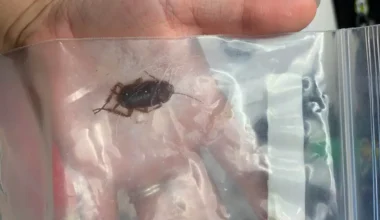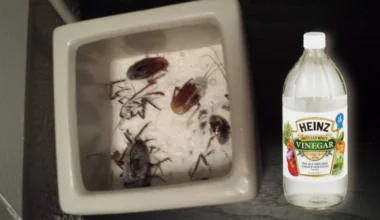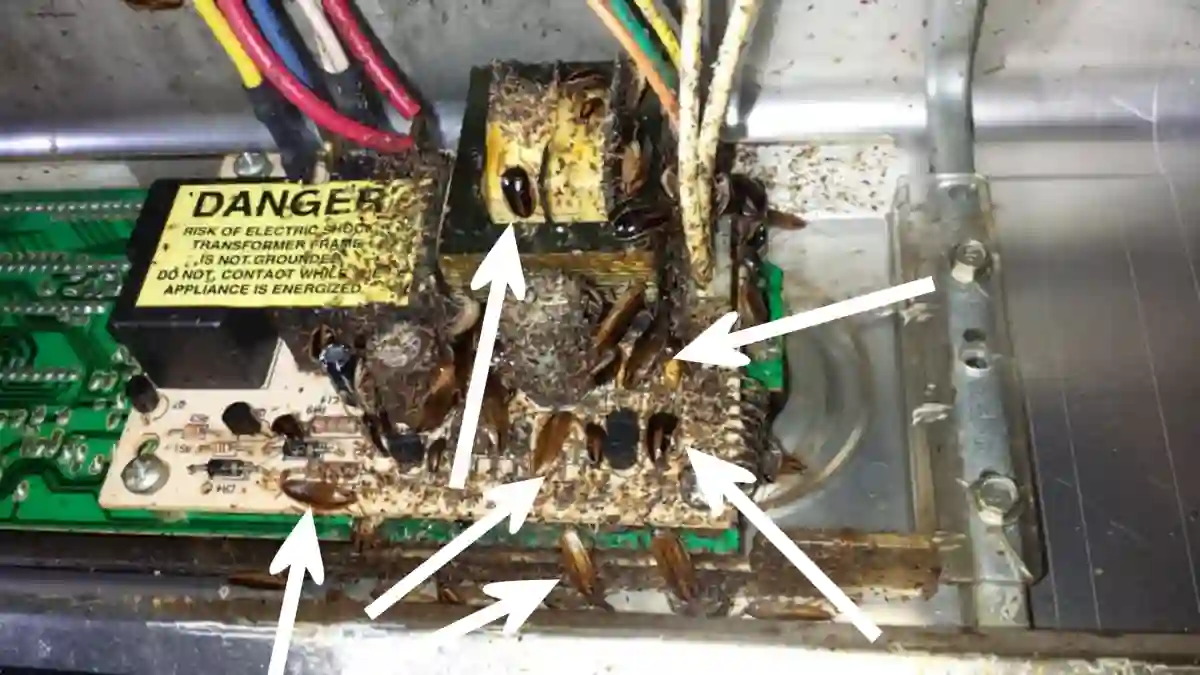Cockroaches can harbor and spread various dangerous diseases, such as dysentery and typhoid. Hence, you have to stop roaches from breeding and address indications of an infestation in your residence as soon as possible. Signs of such an infestation include the presence of cockroach feces, asthmatic reactions, or directly spotting the pests in your home. If left unattended, cockroaches can rapidly reproduce and infest neighboring properties.
How to stop roaches from breeding

1. Use Insect Growth Regulators
Experts often use IGRs (Insect Growth Regulators) in combination with insecticides to stop cockroaches from reproducing. IGR works by disrupting the molting process and reproductive development of immature roaches. It simply mimics hormones in baby roaches and disrupts how they grow and reproduce.¹ This also means that the roaches never get to their full pest potential.
While IGRs do not directly eliminate cockroaches, they can be used in combination with insecticides to enhance control measures.
Most of the German cockroach adults and nymphs will be eliminated by the insecticide. Any nymphs that survive the insecticide will be impacted by the IGR, resulting in either death during the molting process or inability to reproduce as adults due to induced deformities.
If you are not aware of the impact of pyriproxyfen on German cockroaches, you may become worried after observing immature cockroaches captured in sticky traps during post-treatment monitoring. Your concern could be about the effectiveness of the treatment in addressing a German cockroach infestation. When roaches are exposed to pyriproxyfen, it results in distinct developmental characteristics in nymphal German cockroaches. This characteristic depends on the insect’s life stage during the time of exposure.
2. Keep your household clean
Cleanliness in your home can be the ideal way to stop roaches from breeding without a dip in your pocket. But that’s not to say that roaches will not invade a clean home—but not just in the same manner as the dirty counterpart.
Your cleaning mission, should you choose to take it up, is to:
- Dispose of any leftover food and waste properly.
- Regularly wash your dishes, clean cooking areas, kitchen utensils, and tabletops.
- Since cockroaches thrive in unclean environments, eliminate all decaying food and refuse from your residence to hinder their breeding.
- Remove any remaining pet food, promptly address food spills, and promptly discard soiled diapers and dirty clothing.
- Avoid leaving liquids in buckets or sinks overnight.
The simple but not-so-simple goal is to get rid of roach food sources to diminish their ability to breed and multiply on your property.
3. Introduce chemical treatments to breeding areas
Cockroaches tend to breed in dark and secluded areas, such as behind cupboards, within drainage systems, or underneath heavy furniture.² They emerge at night in search of food.
To stop them from breeding, identify these breeding areas and apply chemical solutions to eliminate roaches. You also want to seal any cracks in walls and cabinets—these crevices are typical roach hiding and breeding spots.
4. Control cockroaches with repellents and insecticides
Repellents and insecticides can be helpful pest control and elimination options for cockroaches before they have a chance to breed. You can purchase repellents and pesticides from your local stores or online. Be sure to carefully read and follow the instructions provided with the insecticide to understand its usage. You want to ensure the safe eradication of cockroaches while keeping your household non-toxic.
Exercise caution and avoid inexpensive insecticides, as they are often less effective and may pose risks to both the environment and your family’s well-being.
5. Try electronic cockroach control method
You could use electronic devices to control cockroaches by impacting their nervous system. These devices emit high-frequency waves that repel the pests and stop roaches from breeding.
Moreover, electronic devices for cockroach control are safe. It not only repels the insects but also helps prevent their breeding within your home.
6. Store food items in airtight containers
Apart from shelter, cockroaches also rely on a food supply for their survival and reproductive abilities. This means that covering all the food in your home can hinder roach breeding and multiplication as starve them to death or force them to seek alternative food sources outside your home.
Apart from storing food in tightly sealed containers or boxes, be quick to clean up any food spills and make sure that the trash can is regularly emptied. In general, clean hygiene can discourage cockroach survival.
7. Place cockroach traps in high-activity areas
Set the cockroach traps in strategic locations where you notice roach signs to eliminate them. Possible breeding areas include beneath heavy furniture or near waste disposal sites where roaches are drawn for food. You could use sticky traps which are equipped with adhesive surfaces that attract and capture them. Alternatively, consider using gel baits. But gel baits can be a bit of a mess.
8. Roach-proof your home
As previously mentioned, cockroaches prefer to breed in dark and secluded areas, including crevices and cracks. So, make sure to seal these openings throughout your home to potentially remove their hiding and breeding spots while also preventing their entry.
Be thorough when inspecting your cabinets, walls, window moldings, floors, and any other areas where gaps may be present. Fill in all openings, particularly those surrounding kitchen and bathroom pipes.
An additional step to preventing cockroaches from entering and breeding in your home is to fix damaged drains. You can also place a fine net over bathroom and kitchen drains. If necessary, always pour boiling water down the drains to stop roaches from breeding in them.
9. Keep your yard perimeter debris-free
Cockroaches are attracted to and seek refuge in piles of debris and wood, often venturing into homes in search of food or to seek warmth during colder seasons. Do the following to fix the issue if your yard is currently not in good condition:
- Keep all yard debris at a distance from your home.
- Clear away any accumulated debris, such as fallen leaves, woodpiles, or clutter, which may serve as potential hiding spots for cockroaches.
A debris-free yard perimeter on its own is a barrier that deters cockroaches from finding their way in to breed in your home.
Final thoughts
Make it a habit and don’t stop implementing these preventive measures even after removing cockroaches to avoid re-infestation and further breeding. And if you suspect severe infestation or roaches keep coming back, contact your local pest professional for a permanent fix.
Resources
- Insect Growth Regulators. NPIC
- Cockroach Elimination in Homes and Apartments. College of Agriculture and Food Environment





